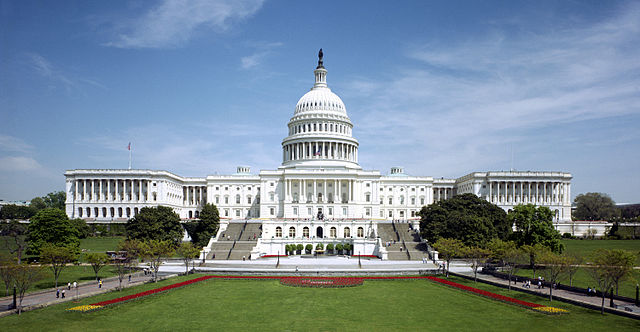Congress vs Parliament
The difference between congress and parliament exist in the way they function. Congress and parliament are terms that have come to represent two major forms of democracies in different parts of the world. While Westminster form of parliamentary democracy is found in Britain and many other commonwealth countries that were ruled by Britain at one point of time and are now free and independent, congressional form of democracy where the President is the head of the executive is opted by mainly US and some other countries. The main purpose of both congress as well as parliament is to make, pass, and amend laws providing representation to states or provinces that collectively make up the nation. However, there are also differences that will be highlighted in this article.
At a superficial level, it seems hard to find out differences between a congress and a parliament as both are made up of popularly elected representatives of people who have got majority votes of the people in their constituency. However, there are differences between both in how members get elected and what their roles and functions are once they are members of the house. The first and foremost difference between the two lies in the meanings of the two terms themselves. While congress comes from a Latin word meaning “to come together,” parliament comes from a French word meaning “to talk.” The same difference in meaning almost defines differences in the election procedure of congressmen and parliamentarians.
Key Takeaways
- Both congress and parliament serve the same purpose of making legislations; however, there are differences in how members get elected and what they do after getting elected in the two types of legislative bodies.
- Congress is the legislative branch of a governing system that has a congressional democracy, and Parliament is the legislative branch of a governing system that has a parliamentary democracy.
- The executive branch is not accountable to the legislative branch in a congressional democracy, while the executive branch is accountable to the legislative branch in a parliamentary democracy.
What is Congress?
Congress is the legislative branch of a governing system that has a congressional democracy. In such a democracy, the executive branch is not accountable to the legislative branch. Also, the head of the government is not a member of the legislature. In the case of a congress, people select their candidate based upon his profile, career, and his plans for future of his constituency.
In the case of a congress, members have more freedom and are not required to toe the party line as they cannot harm the government in the same way as parliamentarians. Congress is bicameral with Senate and House of Representatives in congress. Passage of a bill is a lengthy process in a congress, and it requires pretty heavy support. The House of Representative has to approve it. Then, the Senate has to approve it. Finally, the President has to approve it.
Senate has members that have a lengthy term and are close to members of the Upper House in the sense that they are less concerned with public opinion. They are different from the members of the House of Commons and House of Representatives as they have to campaign to fight for the next election.
What is Parliament?
Parliament is the legislative branch of a governing system that has a parliamentary democracy. In such a democracy, the executive branch is accountable to the legislative branch. Also, the head of the government is a member of the legislature. In sharp contrast to congress, members of parliament are chosen by the political parties though, they get votes from people to get elected. These are the people who are expected to toe the party line all the time.
In the case of a parliament, the majority party elects its Prime Minister who makes his cabinet from his party members who have come into the parliament. This simply means that party members who are also members of parliament have got to support the government’s policies and programs all the time or else government will fall on the floor of the house. Parliament is bicameral with House of Lord and House of Commons in a parliament. A simple majority is enough for a legislation to be passed in a parliament.
If we compare or try to compare the US congress with UK parliament, though it seems that the executive (US President) is more powerful in US than UK (Prime Minister), it is equally true that UK PM has more control over the legislative process than US President.
What is the difference between Congress and Parliament?
Both congress and parliament serve the same purpose of making legislations though, there are differences in how members get elected and what they do after getting elected in the two types of legislative bodies.
• Definition of Congress and Parliament:
• Congress is the legislative branch of a governing system that has a congressional democracy.
• Parliament is the legislative branch of a governing system that has a parliamentary democracy.
• Accountability of the Executive:
• The executive branch is not accountable to the legislative branch in a congressional democracy.
• The executive branch is accountable to the legislative branch in a parliamentary democracy.
• Freedom:
• There is more freedom to members in a congress than in the parliament. This simply means that a member has more individuality in case of congress than in the case of a parliament.
• Parts of Congress and Parliament:
• Congress has two parts as Senate and House of Representatives.
• Parliament has two parts as House of Lords and House of Commons.
• Passage of Legislation:
• Passage of legislation is lengthier in congress than in parliament.
• Influence of the Executive:
• Executive is more powerful in congress.
• However, executive is more in control as far as legislation process is concerned in parliament.
